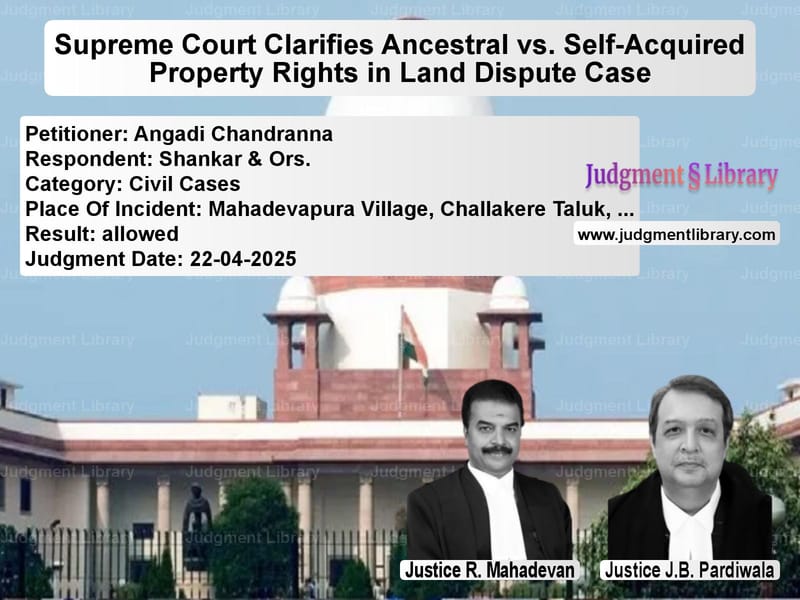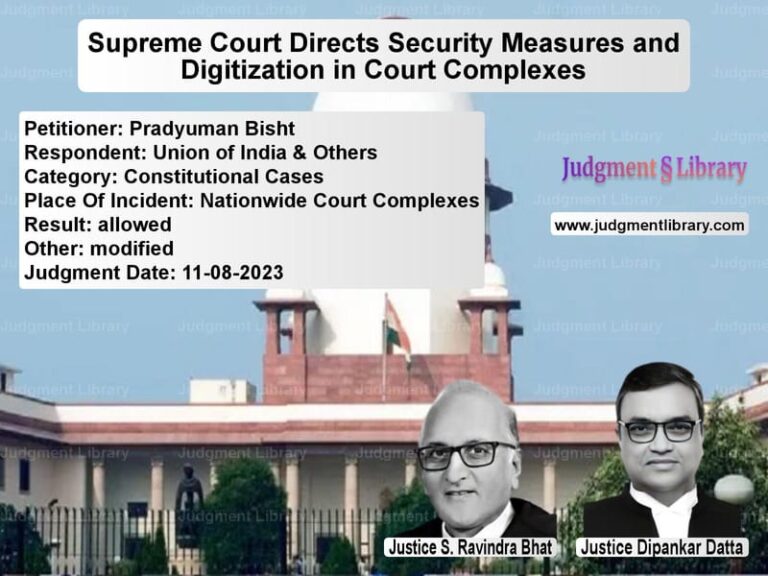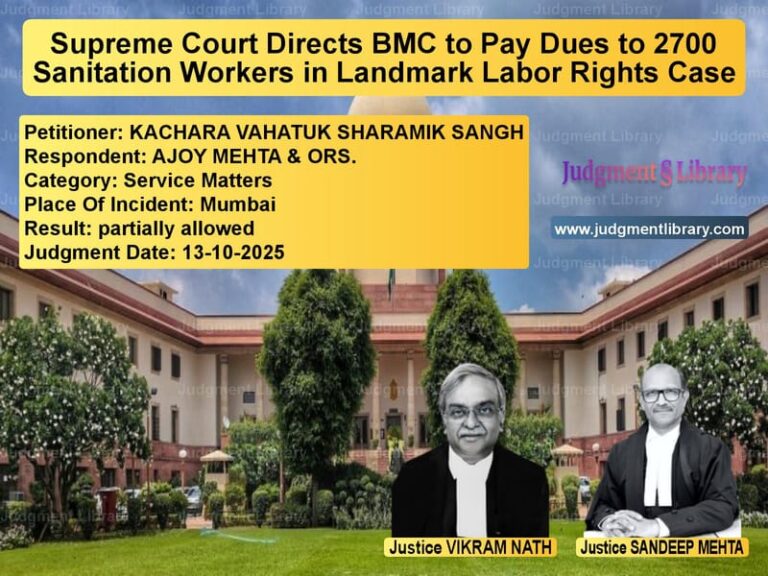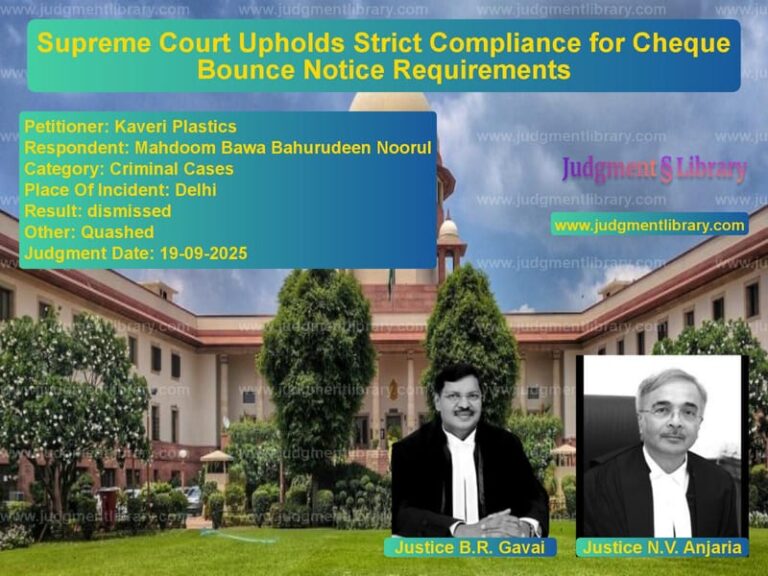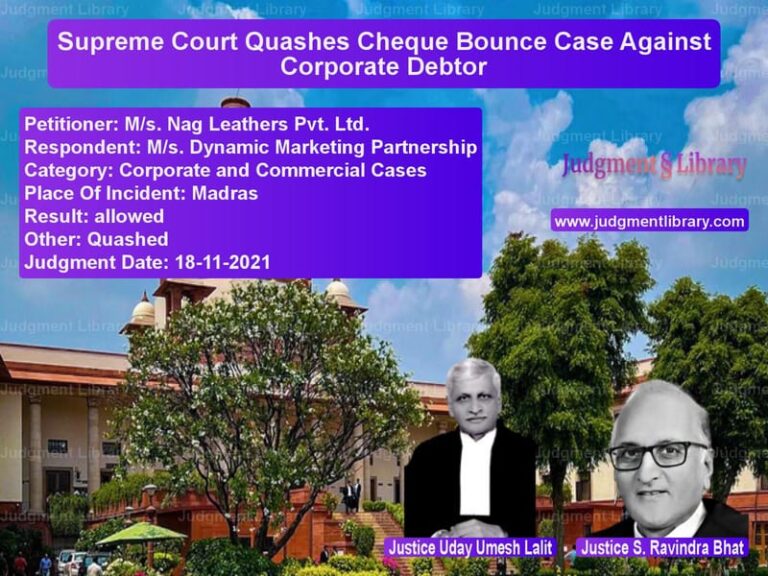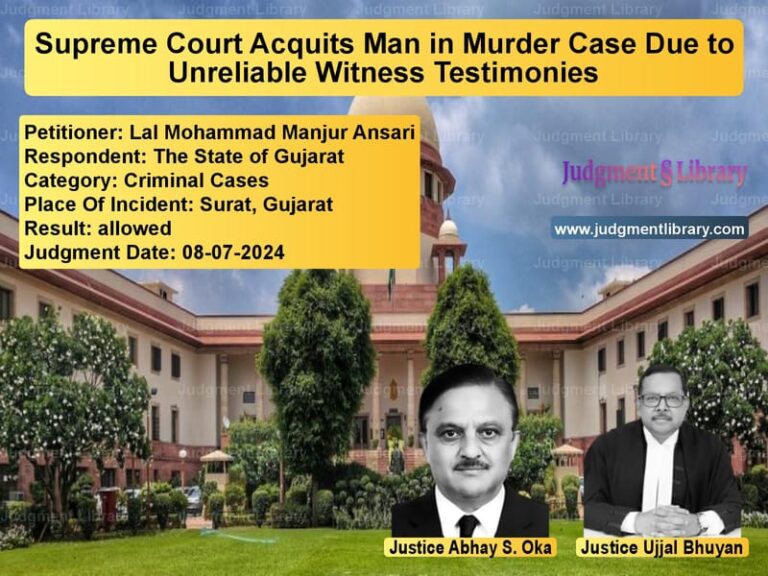Supreme Court Clarifies Ancestral vs. Self-Acquired Property Rights in Land Dispute Case
The Supreme Court of India recently delivered a significant judgment in the case of Angadi Chandranna vs. Shankar & Ors., addressing the critical distinction between ancestral and self-acquired property under Hindu law. The case revolved around a dispute over a property measuring 7 acres and 20 guntas in Mahadevapura Village, Challakere Taluk, Karnataka. The judgment, authored by Justice R. Mahadevan, provides clarity on property rights, the doctrine of blending, and the scope of appellate jurisdiction under the Code of Civil Procedure.
The dispute began when the plaintiffs, sons and daughters of Defendant No.1 (C. Jayaramappa), filed a suit for partition and separate possession of the property, claiming it was ancestral. The trial court ruled in their favor, but the First Appellate Court reversed this decision. The High Court of Karnataka later reinstated the trial court’s judgment, leading to the appeal before the Supreme Court.
The Supreme Court meticulously examined the facts and legal principles involved. The appellant, Defendant No.2 (Angadi Chandranna), argued that the property was self-acquired by Defendant No.1, who had purchased it from his brother using his own funds and a loan. The respondents, however, contended that the property was acquired using joint family funds and thus remained ancestral.
One of the key arguments from the appellant’s side was that the High Court erred in framing a substantial question of law under Section 100 of the CPC. The appellant relied on precedents like Jaichand (Dead) Through LRs & Ors. v. Sahnulal & Anr. and Gurnam Singh (Dead) by LRs & Ors. v. Lehna Singh (Dead) by LRs, emphasizing that the High Court cannot re-appreciate evidence in a second appeal unless a substantial question of law is involved.
The respondents, on the other hand, argued that the property was purchased using joint family funds, including income from land allotted to Defendant No.1 during partition, cash received during partition, and funds from their grandmother. They cited Hindu law principles from Mulla’s treatise and the case of Yadhishter v. Ashok Kumar, asserting that the property retained its ancestral character.
The Supreme Court, in its judgment, underscored the importance of distinguishing between ancestral and self-acquired property. It reiterated that after a partition, the property allotted to a party becomes their self-acquired property, and they have absolute rights over it. The Court also clarified that the doctrine of blending applies only when there is clear evidence of an intention to abandon separate claims over the property.
Justice Mahadevans observations were particularly noteworthy: “It is a settled principle of law that there is no presumption of a property being joint family property only on account of existence of a joint Hindu family. The one who asserts has to prove that the property is a joint family property.” The Court also highlighted that the High Court had overstepped its jurisdiction by re-examining facts without a substantial question of law.
Ultimately, the Supreme Court set aside the High Courts judgment and restored the First Appellate Courts decision, ruling that the property was self-acquired by Defendant No.1 and that the sale to Defendant No.2 was valid. The judgment serves as a crucial precedent for property disputes involving ancestral and self-acquired properties, reinforcing the legal principles governing such cases.
Petitioner Name: Angadi Chandranna.Respondent Name: Shankar & Ors..Judgment By: Justice R. Mahadevan, Justice J.B. Pardiwala.Place Of Incident: Mahadevapura Village, Challakere Taluk, Karnataka.Judgment Date: 22-04-2025.Result: allowed.
Don’t miss out on the full details! Download the complete judgment in PDF format below and gain valuable insights instantly!
Download Judgment: angadi-chandranna-vs-shankar-&-ors.-supreme-court-of-india-judgment-dated-22-04-2025.pdf
Directly Download Judgment: Directly download this Judgment
See all petitions in Property Disputes
See all petitions in Succession and Wills
See all petitions in Landlord-Tenant Disputes
See all petitions in Judgment by R. Mahadevan
See all petitions in Judgment by J.B. Pardiwala
See all petitions in allowed
See all petitions in supreme court of India judgments April 2025
See all petitions in 2025 judgments
See all posts in Civil Cases Category
See all allowed petitions in Civil Cases Category
See all Dismissed petitions in Civil Cases Category
See all partially allowed petitions in Civil Cases Category

